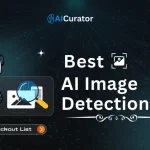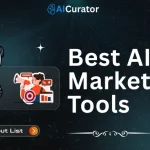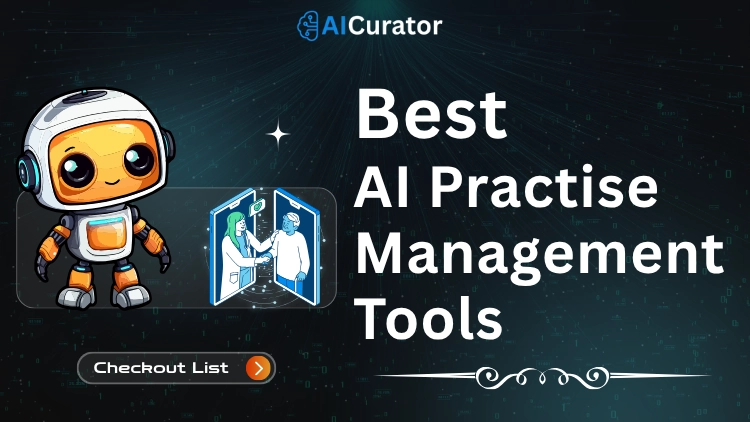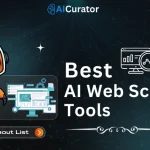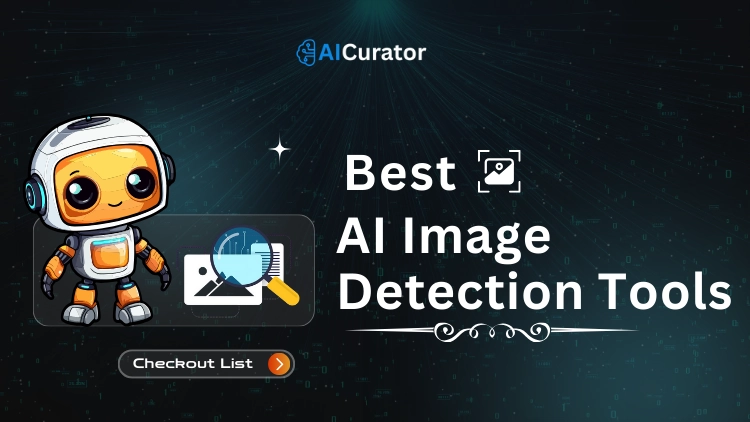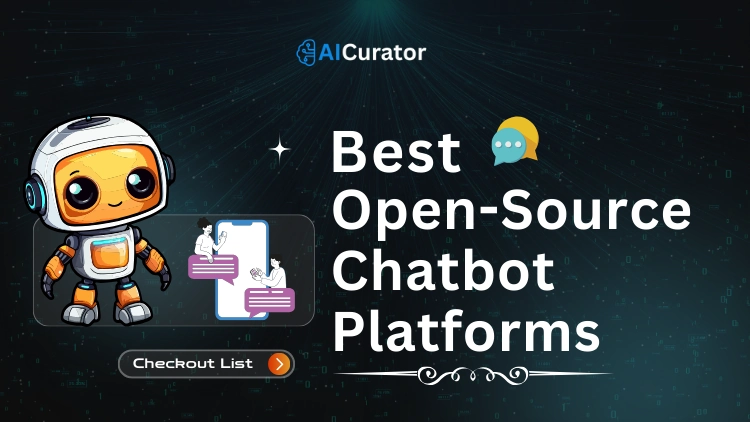Healthcare providers are drowning in administrative tasks, and many so-called ‘AI' practice management solutions only make the problem worse.
These platforms often promise efficiency but deliver clunky interfaces and rigid templates that feel more like a burden than a help.
At Aicurator.io, we have examined dozens of these tools to find what actually works. We've ranked the top solutions based on their ability to genuinely automate workflows, streamline billing, and improve clinical documentation, letting doctors focus on what matters: patient care.
Why Healthcare Providers Need AI Practice Management Solutions
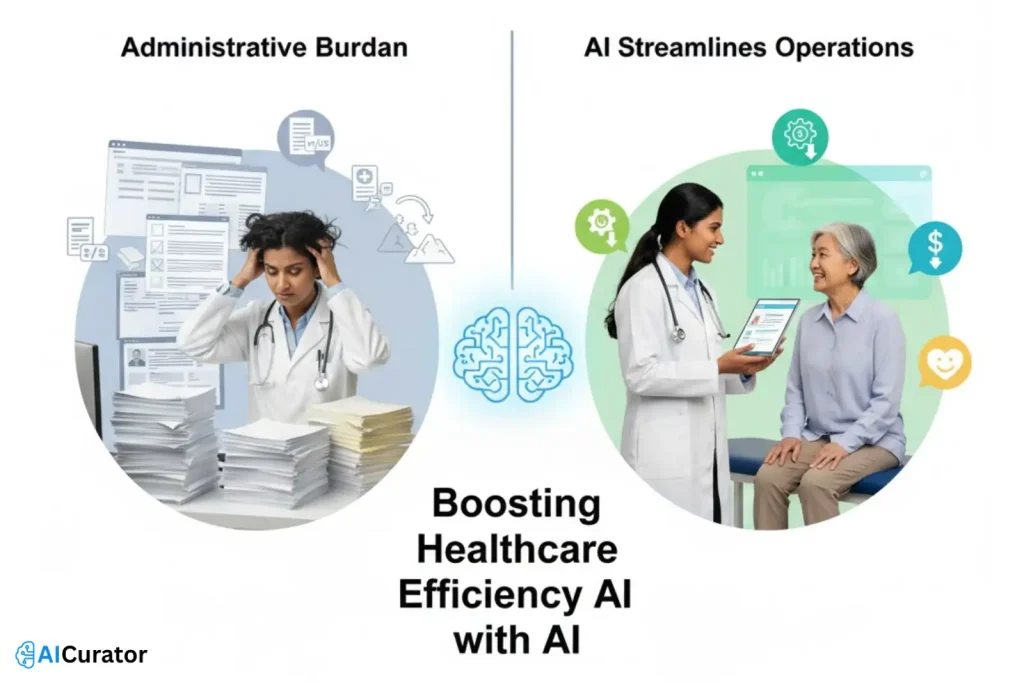
The administrative burden facing modern healthcare is staggering. Clinicians often spend more time on paperwork, data entry, and billing than on direct patient care—a reality that contributes significantly to physician burnout and operational inefficiencies.
AI platforms directly address this by automating repetitive, time-consuming tasks. This automation streamlines practice operations, reduces administrative costs, and minimizes human errors in areas like medical billing and coding.
By offloading these duties, AI frees up medical staff to focus on delivering quality patient care, which improves both patient outcomes and job satisfaction.
Practice Management Software That Cuts Administrative Work by 60%
| AI Practice Management Solutions | Primary Function | Best For |
|---|---|---|
| Freed AI | AI Medical Scribe | Automated Clinical Notes |
| Carepatron | All-in-One Platform | Integrated Practice Management |
| Veradigm | Data-driven Insights | Large Health Systems |
| Nuance (DAX) | Ambient Documentation | Reducing Physician Burnout |
| athenahealth | Cloud-based Services | Network-Driven Insights |
| AdvancedMD | Unified Cloud Suite | Independent Medical Practices |
| Enlitic | AI Data Standardization | Unstructured Medical Data |
1. Freed
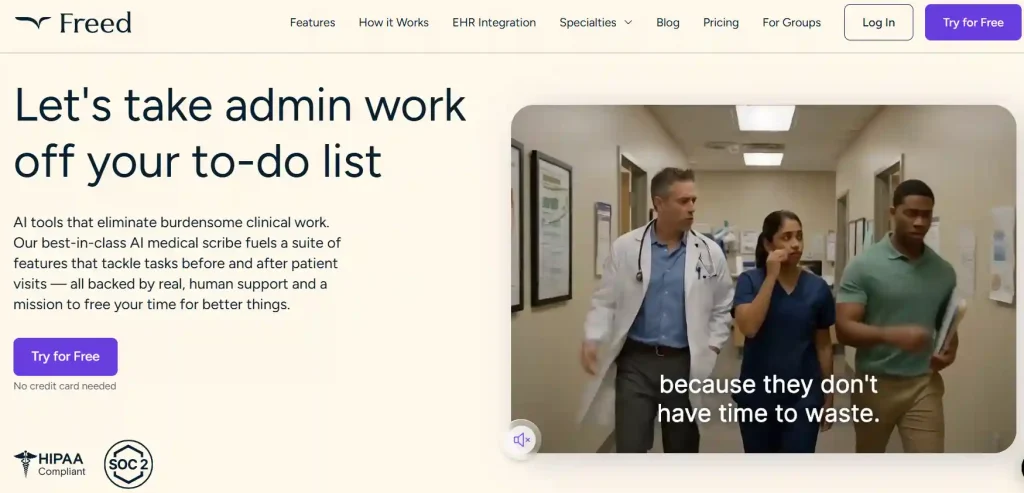
Freed is an intelligent AI medical scribe that transforms clinical documentation. It actively listens to patient-provider conversations, transcribing them into structured, accurate medical notes in real-time.
By leveraging machine learning, it adapts to your unique documentation style, ensuring the final output is ready for your EHR with minimal edits.
This HIPAA-compliant solution significantly cuts down on administrative work, tackling clinician burnout head-on. Freed's AI-powered automation allows practitioners to reclaim hours spent on paperwork, improve patient focus, and achieve a better work-life balance, directly boosting practice efficiency.
Freed Pros
Freed Cons
Best for: Small to medium practices needing to automate clinical documentation efficiently.
2. Carepatron
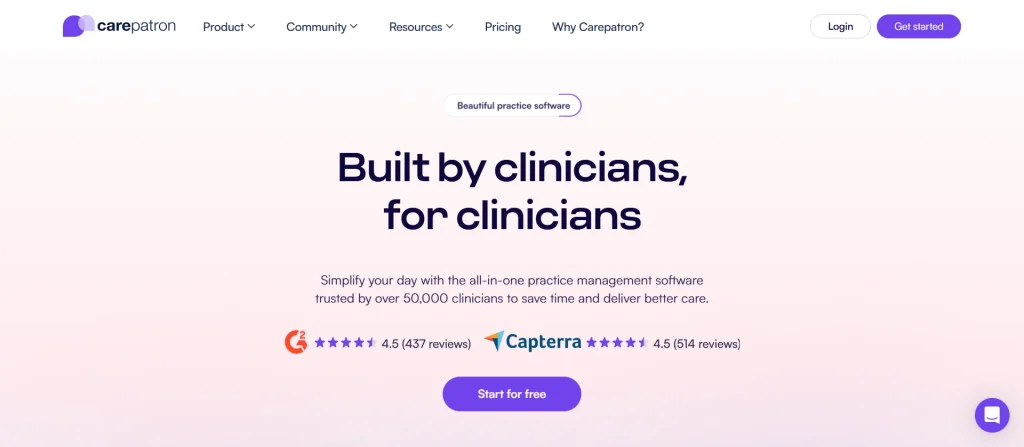
Carepatron delivers a truly all-in-one AI practice management software designed for modern healthcare. It unifies EHR capabilities with essential administrative tools, from automated patient scheduling and reminders to secure billing and payment processing.
The platform is built to streamline the entire practice workflow from a single interface. With a focus on patient engagement, Carepatron includes a dedicated client portal and integrated telehealth features.
Its AI-powered automation reduces repetitive tasks, allowing healthcare teams to dedicate more time to delivering high-quality patient care and improving overall operational outcomes.
Carepatron Pros
Carepatron Cons
Best for: Healthcare providers seeking a versatile, fully integrated practice management solution.
3. Veradigm
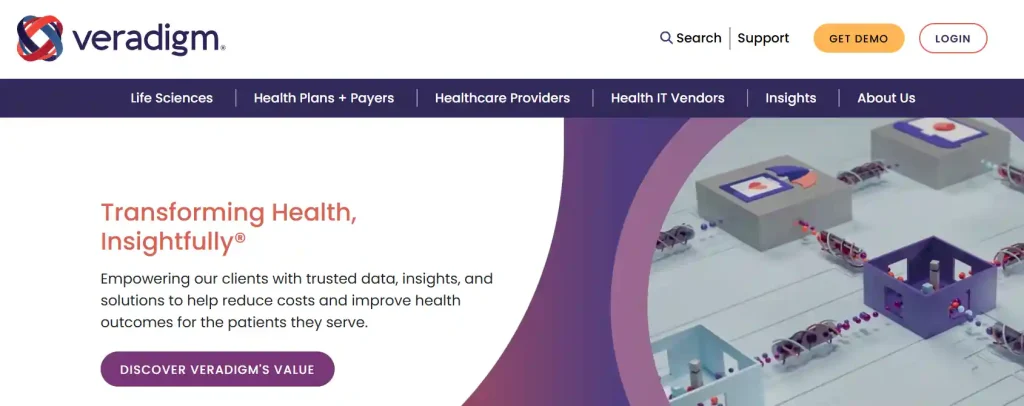
Veradigm provides highly adaptable practice management software tailored for specialty clinics. This solution excels at optimising complex workflows by offering a configurable rules engine that automates work queues for scheduling, claims management, and revenue cycle processes based on the practice's unique preferences.
Its EHR-agnostic design ensures seamless integration with your existing systems, enhancing productivity without requiring a complete overhaul.
Veradigm’s user-friendly interface supports quick adoption, enabling practices to improve financial performance and patient care through intelligent automation and robust data analysis.
Veradigm Pros
Veradigm Cons
Best for: Specialist practices that require highly tailored and automated workflow management.
4. Nuance
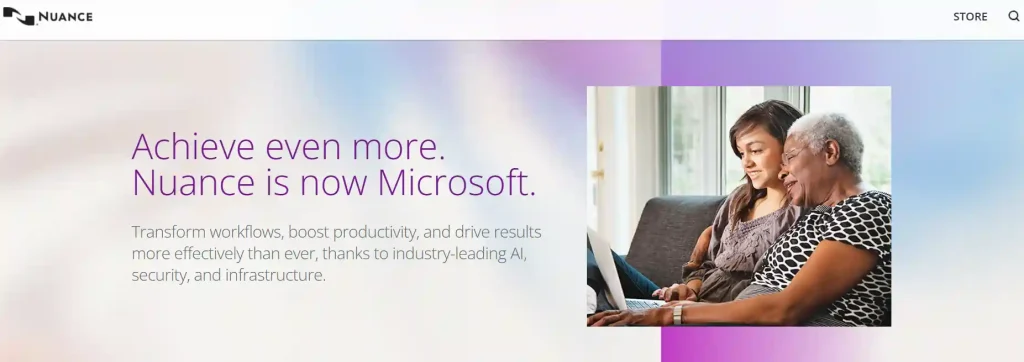
Nuance is a leader in conversational AI, offering advanced clinical documentation solutions that deeply integrate with major EHR systems like Allscripts.
Its best-in-class speech recognition technology allows clinicians to capture the complete patient story naturally, reducing screen time and improving the quality of care.
Beyond voice-to-text, Nuance provides AI-powered tools for Computer-Assisted Physician Documentation (CAPD) and Clinical Documentation Improvement (CDI).
These features offer in-workflow guidance to ensure documentation is accurate and compliant, boosting care team efficiency and satisfaction across large healthcare organisations.
Nuance Pros
Nuance Cons
Best for: Large health systems needing robust, AI-powered clinical documentation improvement.
5. athenahealth
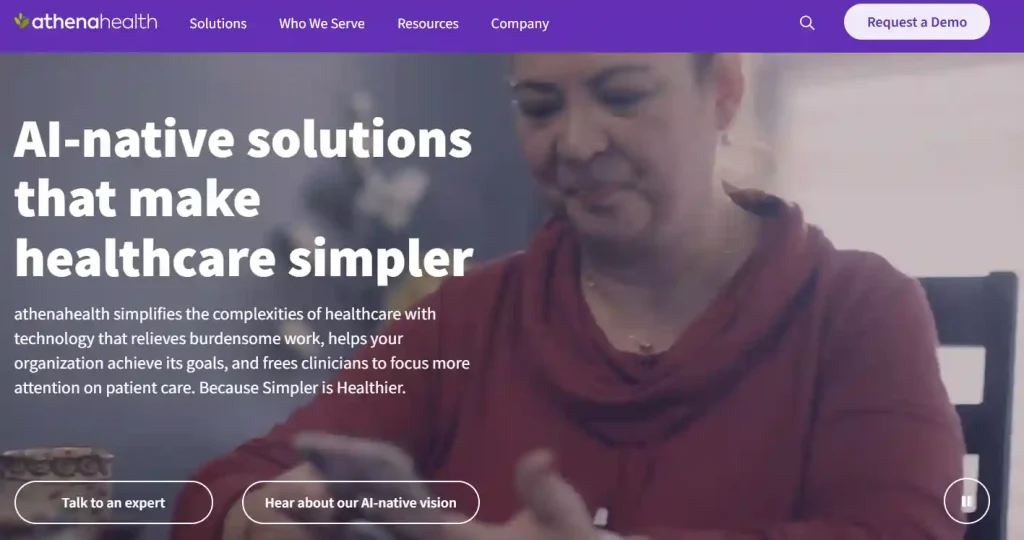
athenahealth’s athenaOne is a unified, AI-powered platform that combines EHR, medical billing, and patient engagement into one seamless solution. It leverages machine learning for smart automation, such as its AI-powered insurance selection feature that reduces manual entry and errors during patient intake.
The platform provides data-driven insights into financial performance through customisable dashboards, helping practices optimise their revenue cycle management.
With its extensive interoperability network and mobile-friendly patient tools, athenaOne helps practices improve clinical effectiveness and financial outcomes while enhancing the patient experience.
athenahealth Pros
athenahealth Cons
Best for: Practices looking for an integrated platform with strong AI analytics.
6. AdvancedMD
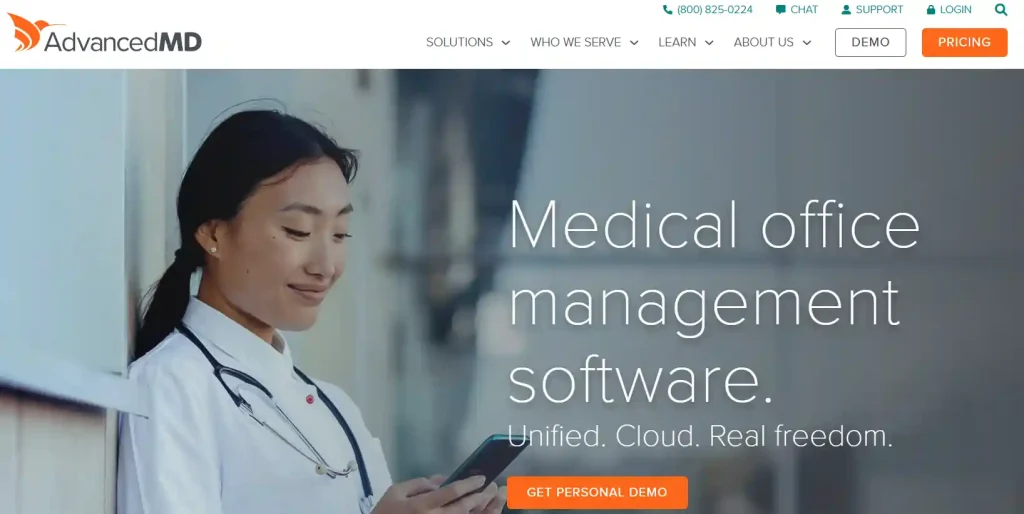
AdvancedMD delivers a cloud-based medical office platform that uses AI to transform clinical and financial workflows. A standout feature is its ambient listening capability, which allows for hands-free clinical documentation by capturing conversations and turning them into structured notes automatically.
This powerful suite integrates practice management, EHR, and patient engagement tools. It further streamlines operations with AI-driven computer-assisted coding and automated prior authorisation workflows.
These smart applications reduce staff burnout and empower private practices to improve both patient outcomes and financial performance.
AdvancedMD Pros
AdvancedMD Cons
Best for: Private practices aiming to achieve maximum workflow automation with AI.
7. Enlitic
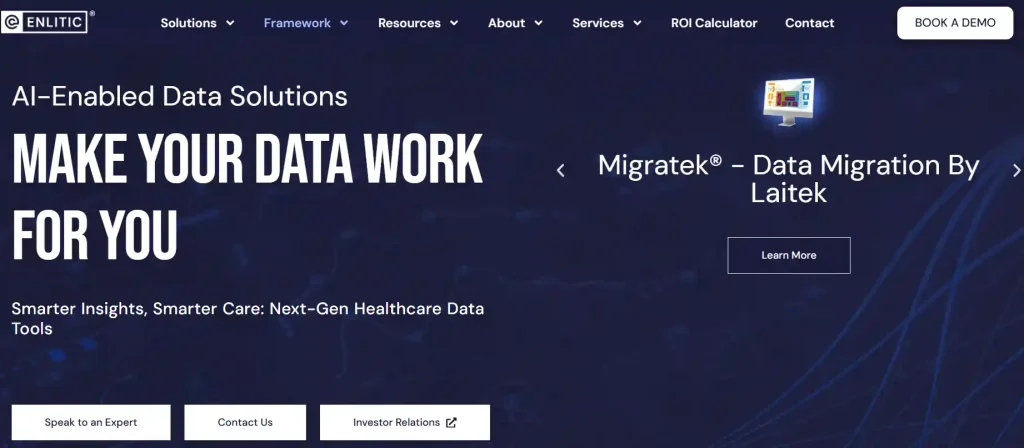
Enlitic specialises in applying AI to enhance medical imaging data and streamline radiology workflows. Its AI-driven data refinery platform standardises DICOM and metadata, ensuring that data is consistent, accurate, and clinically relevant across the entire healthcare organisation.
By improving data quality at its source, Enlitic’s solutions like ENDEX and ENCOG help fix hanging protocol issues, improve data routing, and enable secure data anonymization for research while maintaining patient privacy.
This empowers radiologists and administrators to make better clinical decisions and improve operational efficiency.
Enlitic Pros
Enlitic Cons
Best for: Radiology departments and health systems focused on healthcare data management.
Key AI Features in Healthcare Practice Management Solutions
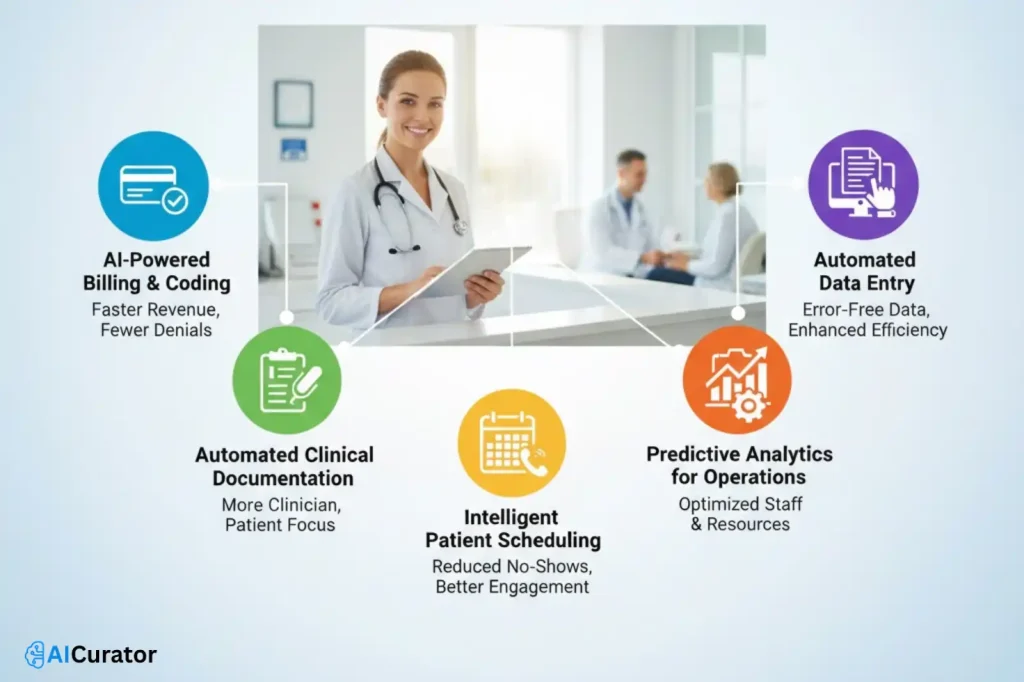
The best AI features in healthcare practice management solutions automate key tasks and deliver actionable, data-driven insights.
Moving Forward with AI Practice Management Solutions
AI practice management solutions provide a clear path for healthcare providers to minimize administrative burdens and combat burnout. By automating essential tasks like billing, scheduling, and clinical documentation, these platforms empower clinicians to dedicate more time to patient care.
This shift not only boosts operational efficiency but also enhances the quality of health outcomes. For any practice aiming to modernize its workflow and improve patient focus, adopting the right AI solution is a critical step toward building a more effective future.
Recommended Readings:


